Reflections: World Peace through Personal Peace

This is the first part of a four-part series with the Dalai Lama Center's founding director Victor Chan. He looks back at the 2009 Vancouver Peace Summit, a global event that brought five Nobel Laureates and many more world-renowned thinkers and leaders in social transformation to Vancouver to talk about creating a more compassionate, peaceful world.
To open the 2009 Vancouver Peace Summit, the Dalai Lama joined Matthieu Ricard, Mpho Tutu, Eckhart Tolle, Pierre Omidyar and Sir Ken Robinson on stage for a discussion entitled World Peace through Personal Peace. This inspiring dialogue explored how inner transformation can help us work towards building a more peaceful world.
The dialogue began with the presentation of the inaugural Fetzer Prize of Love and Forgiveness to the Dalai Lama and Archbishop Desmond Tutu. The archbishop's daughter, Rev Mpho Tutu, accepted the award on his behalf while he remained back in South Africa recovering from a a back injury.
Victor Chan, founding director of the Dalai Lama Center, had a special backstage view of the session. Here, he shares some of his reflections from the opening dialogue.

On the Fetzer Prize for Love and Forgiveness:
“The Fetzer Institute's mandate is the promotion of compassion and forgiveness, love and kindness. In North American terms, this is quite unusual. Not too many foundations of this calibre focus on this aspect of humanity”
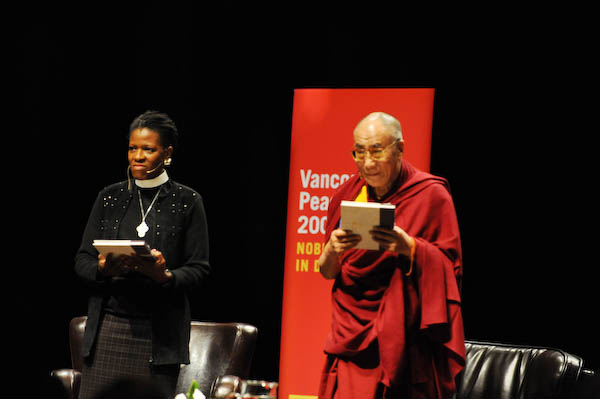
On His Holiness the Dalai Lama and Archbishop Desmond Tutu winning the inaugural Fetzer Prize for Love and Forgiveness:
“I think it was very fitting that the first Fetzer Prize for Love and Forgiveness was given to the Dalai Lama and Archbishop Desmond Tutu. Both of them personify the ideas of love and forgiveness and have worked tirelessly to promote them. And of course, the facts speak for themselves. The Dalai Lama makes a huge effort to reach out to the Chinese people despite all that has happened in his homeland. And Desmond Tutu has been instrumental in bringing an end to apartheid and creating a climate of reconciliation and dialogue in South Africa.
The Dalai Lama has said that love and forgiveness should go beyond the scope of close friends and families. It only becomes meaningful when we are able to apply those values beyond these limits.
In my opinion, these two extraordinary men are the perfect choice as the recipients of the Fetzer prize.”
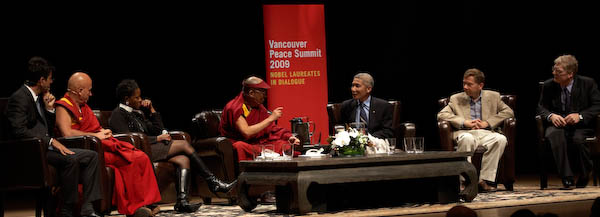
On the mix of panel speakers:
“For the dialogue on Personal Peace, we brought together an eclectic mix of speakers from different backgrounds. There was lots of laughter, humour, respect and chemistry between all of them."
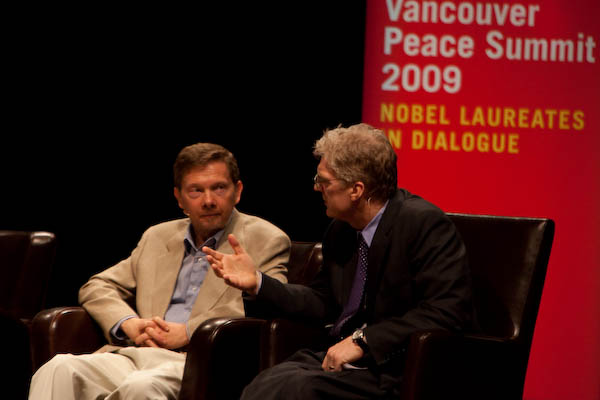
"As moderator, Sir Ken Robinson was able to touch on very diverse points of view and weave them together well."
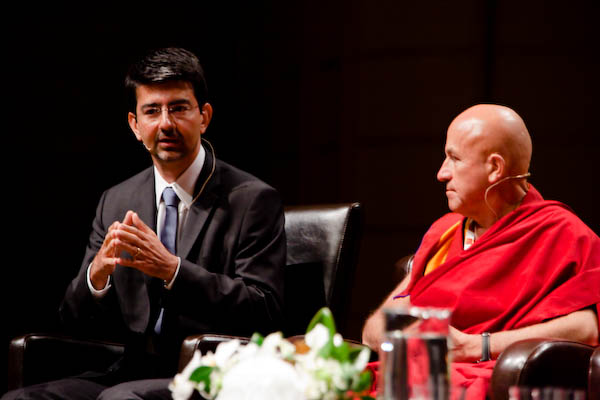
"The overarching spiritual insights came from the Dalai Lama and Mpho Tutu as well as Eckhart Tolle and Matthieu Ricard. In my opinion, they were well-balanced with Pierre Omidyar's views and knowledge about the Internet, about the “dot-com” industry and how technology can help bring us all together."
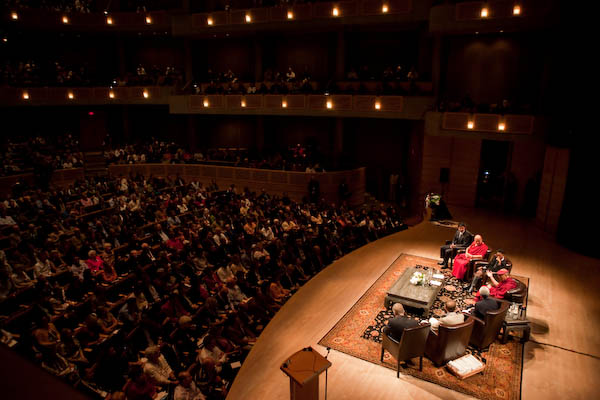
On the importance of personal peace:
“When I introduced the panel, I started with a story that my neighbour has told me about the flight of the hummingbird. As the story goes, a raging forest fire is destroying everything in sight and all the animals and insects are fleeing. And here is a little hummingbird that flies to the river, fetches a drop of water and flies back over the burning trees. There the hummingbird drops the water on the fire. The other animals are making fun of the hummingbird. They say, "Why are you doing such a futile thing?' And the hummingbird replies,'I do what I can."
I think the issue of world peace can be approached like that. It’s a huge problem. It’s multi-faceted. And nobody has a cut-and-dry solution to it. But, like the hummingbird, it’s important for people to understand that they have the power to make a contribution.”
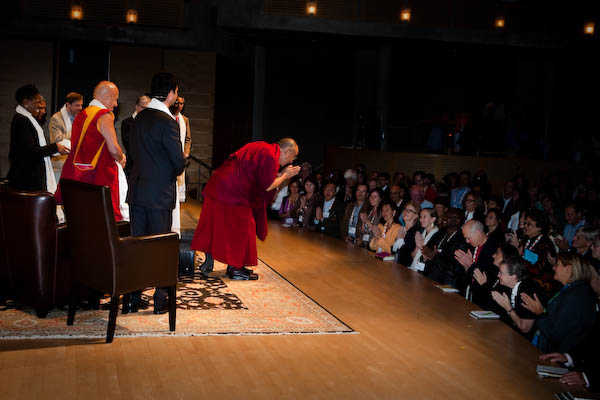
On what he hopes people might take away from World Peace Through Personal Peace:
“There were many insights and words of wisdom presented in the discussion. But different things hold different meanings for the audience. Sometimes a stray phrase or interchange that people hardly notice at the time can have a very significant impact on peoples’ lives in the way that they get transformed. They might want to change their habits and do something for the common good. It’s like the proverbial flapping of the wings of the butterfly. The results can be far-reaching and very potent.”
For a sneak peek at World Peace through Personal Peace, check out the video below.
You are missing some Flash content that should appear here! Perhaps your browser cannot display it, or maybe it did not initialize correctly.
You are missing some Flash content that should appear here! Perhaps your browser cannot display it, or maybe it did not initialize correctly.
Stay tuned for the next installment in the series: Nobel Laureates in Dialogue: Connecting for Peace







Comments
Post new comment